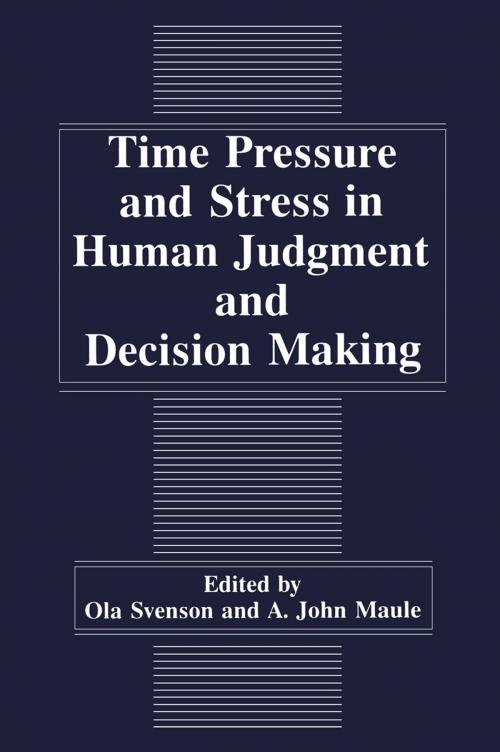Time Pressure and Stress in Human Judgment and Decision Making
Nonfiction, Health & Well Being, Psychology, Psychotherapy, Cognitive Psychology| Author: | ISBN: | 9781475768466 | |
| Publisher: | Springer US | Publication: | March 9, 2013 |
| Imprint: | Springer | Language: | English |
| Author: | |
| ISBN: | 9781475768466 |
| Publisher: | Springer US |
| Publication: | March 9, 2013 |
| Imprint: | Springer |
| Language: | English |
Some years ago we, the editors of this volume, found out about each other's deeply rooted interest in the concept of time, the usage of time, and the effects of shortage of time on human thought and behavior. Since then we have fostered the idea of bringing together different perspectives in this area. We are now, there fore, very content that our idea has materialized in the present volume. There is both anecdotal and empirical evidence to suggest that time con straints may affect behavior. Managers and other professional decision makers frequently identify time pressure as a major constraint on their behavior (Isen berg, 1984). Chamberlain and Zika (1990) provide empirical support for this view, showing that complaints of insufficient time are the most frequently report ed everyday minor stressors or hassles for all groups of people except the elderly. Similarly, studies in occupational settings have identified time pressure as one of the central components of workload (Derrich, 1988; O'Donnel & Eggemeier, 1986).
Some years ago we, the editors of this volume, found out about each other's deeply rooted interest in the concept of time, the usage of time, and the effects of shortage of time on human thought and behavior. Since then we have fostered the idea of bringing together different perspectives in this area. We are now, there fore, very content that our idea has materialized in the present volume. There is both anecdotal and empirical evidence to suggest that time con straints may affect behavior. Managers and other professional decision makers frequently identify time pressure as a major constraint on their behavior (Isen berg, 1984). Chamberlain and Zika (1990) provide empirical support for this view, showing that complaints of insufficient time are the most frequently report ed everyday minor stressors or hassles for all groups of people except the elderly. Similarly, studies in occupational settings have identified time pressure as one of the central components of workload (Derrich, 1988; O'Donnel & Eggemeier, 1986).















